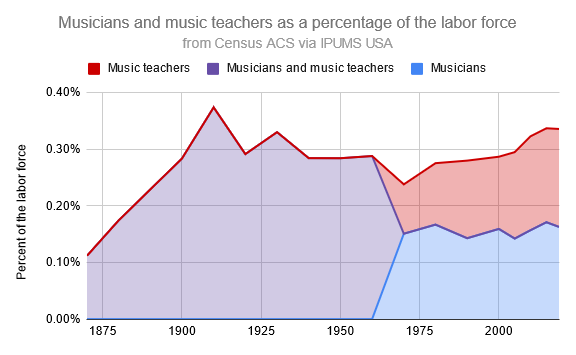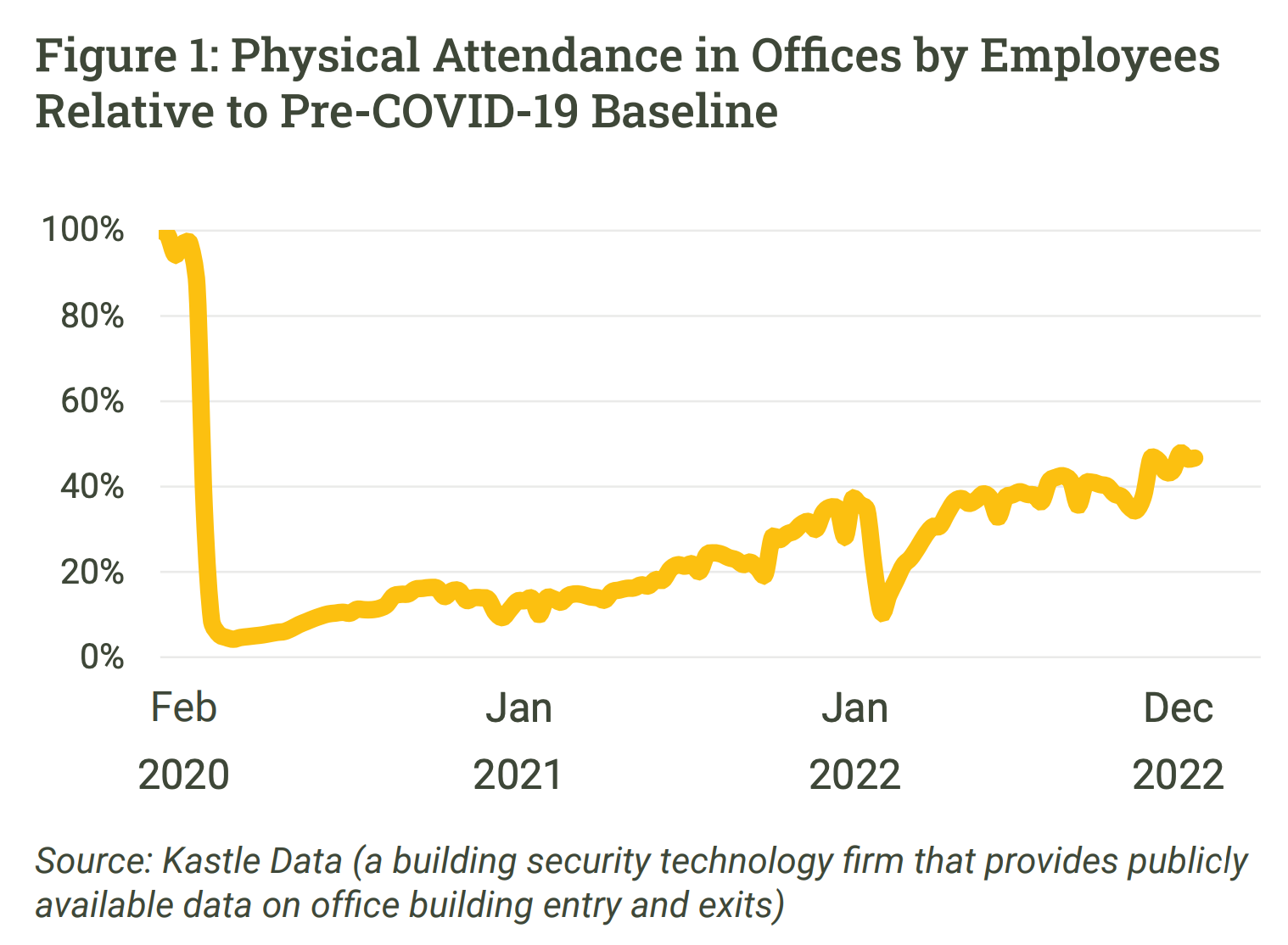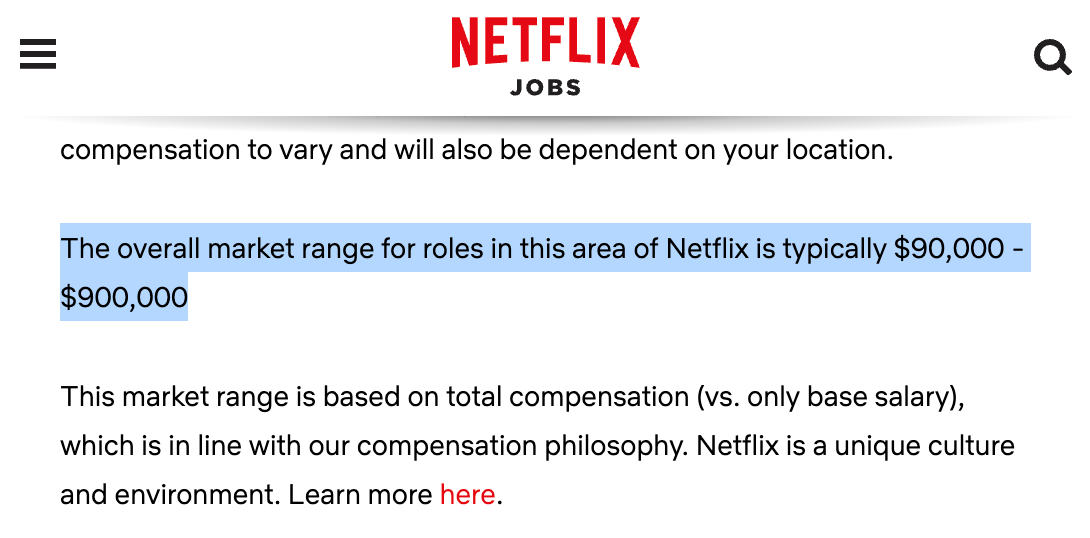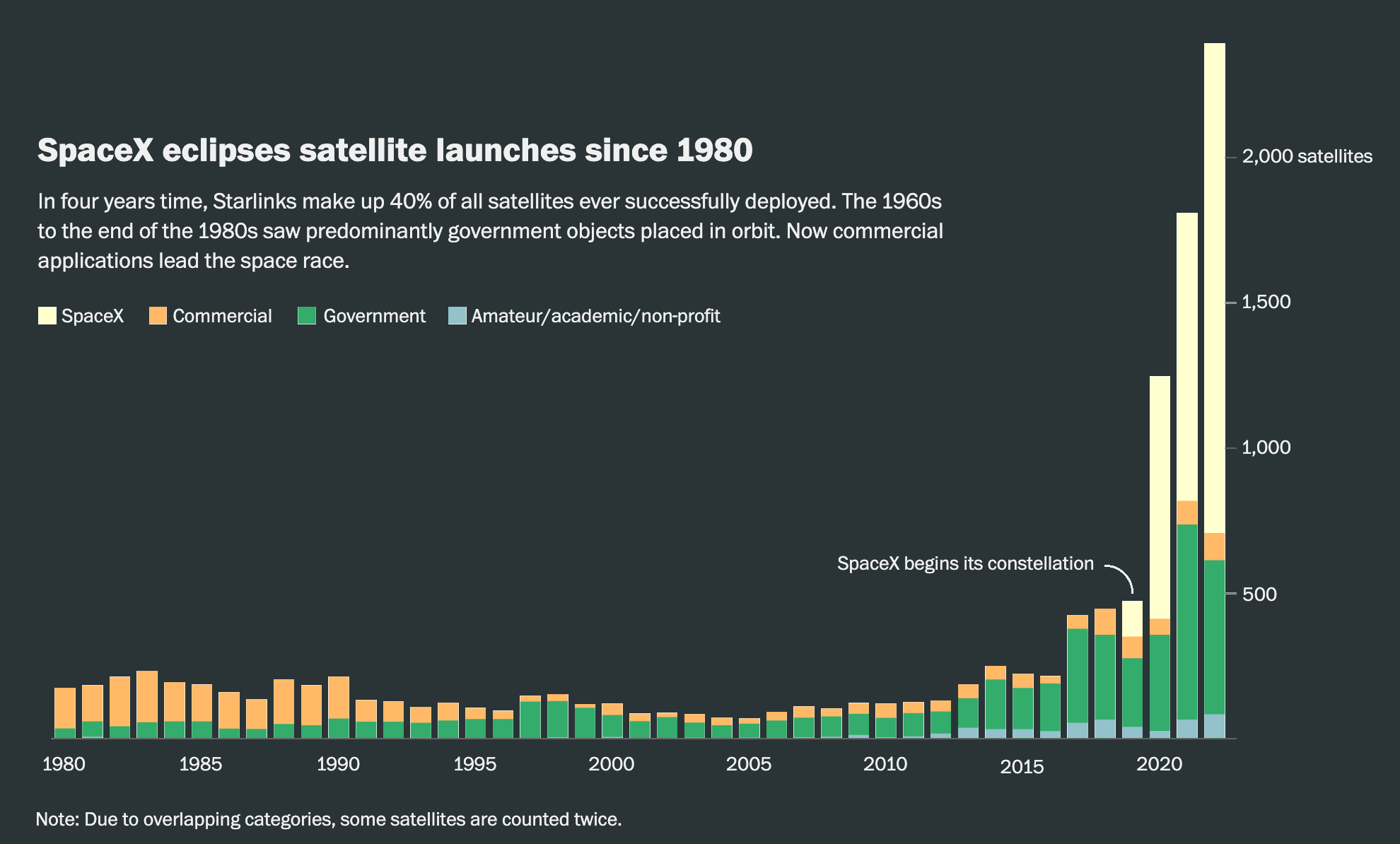Weekly Brain Food: Coliving, AI, Inequality, Conversions
Articles and ideas I am processing this week.

Below are brief thoughts on the week's news + articles and ideas I found interesting. This piece goes out only to Premium Subscribers. I am experimenting with the format, so let me know what you find valuable and what can be added/reduced.
On Friday, I will send out the weekly essay. I have some last-minute travel this week, so the recommended book list for 2022 will be published next week.
Coliving is growing up
A new co-living giant emerges. U.S.'s Common Living merged with Germany's Habyt, bringing together 11,000 apartments under operation in Europe, Asia, and the U.S. As the WSJ reports, demand for shared apartments bounced back after dipping during Covid-19. In the U.S., occupancy rates now stand at around 90%, while rents are 10% above their 2019 levels.
But Common's growth is about more than co-living. It's about bringing a new service and product approach to residential real estate — about picking a specific market segment, developing a physical product that appeals to it, and surrounding it with a digitally native marketing and service experience.
As I outlined in Rethinking Real Estate, Common's playbook applies to various other segments, including families and empty nesters. Over time, Common expanded to address such segments, and it looks like the newly-merged company will continue in the same direction. CEO Karlene Holloman told the WSJ that "eventually we all want to get to a place where we use the same technology, the same process, the same relationships with landlords to manage all kinds of properties for all kinds of ages as well."
The merged company's scale will make it easier to compete (and collaborate) with traditional industry giants in the U.S. In Europe and the U.K., it has an even bigger opportunity to capture a piece of the less-developed institutional "built to rent" market.
Common's founder and former CEO, Brad Hargreaves, shared his thoughts on the merger and journey here.
Who Benefits from A.I.?
Everybody's talking about A.I. New image and text generation tools seem inherently disruptive. And yet, it is not clear whether they will undermine our current tech giants or empower them. Perhaps more importantly, it is unclear whether they will undermine or empower most creative workers. This conversation will continue for a few more decades. But it is worth highlighting a few early trends and possibilities.
Let's start with big tech. Microsoft is an existing investor in OpenAI, the creator of ChatGPT. Microsoft is reportedly in talks to invest $10 billion more into OpenAI in a deal that would funnel most of the venture's early profits to the tech giant. The rumor is that Microsoft plans to integrate OpenAI's capabilities into its Bing search engine and office products. To see what this might mean in practice, look at AI-powered word processors such as Jasper and Lex.
Microsoft also has its in-house capabilities. It recently published a study that revealed a Text-To-Speech (TTS) engine that imitates people's voices based on a mere 3-second sample. You can listen to some examples here.
Last week, Apple introduced an AI-power narration tool that converts written books into audiobooks. Unlike traditional "machine voices," Apple's tool sounds human. Apple likely released the tool now to signal to the market that it, too, has serious A.I. capabilities and should be part of the conversation.
Over the past few months, Apple also tweaked its software in order to improve the performance of Stable Diffusion, open-source software that generates images based on human prompts. By doing so, Apple is making it easier for people to generate images on their own iPhones and Macs rather than on expensive machines in the cloud. Beyond the cost savings, it gives users the privacy of processing and generating content on their own devices rather than anyone else's.
By supporting open-source software, Apple is trying to commoditize its complements: Apple benefits when the most popular software and the best content are free and look better on Apple devices (Ben Thompson expands on this here).
Meanwhile, Google probably has the best in-house A.I. tools, which the company has been slow to roll out. Google's dependence on machine intelligence is both a benefit and a threat. Over the next few years, we'll see if these tools enable the company to extend its dominance or lose out to new and existing competitors. Google is slow to introduce new tools because it might require it to experiment with new business models that compete with its existing business or to embrace lower quality standards that undermine its current promise.
For example, ChatGPT provides great human-like answers to questions. But it is often spectacularly wrong. Google search users would not tolerate such errors. Hence, Google's search dominance makes it hard for the company to experiment with new search products.
And then there's Facebook. The company spends a lot of money on A.I. software and hardware development. Its advertising business will likely benefit from the ability to generate and test millions of ads quickly and cheaply. So, while Microsoft tries to revive Bing and Google tries to defend search, Facebook might be in the best position to make a lot of money from generative A.I. in the immediate future.
One thing is sure: Over the next few years, AI-powered tools will be integrated into the devices and software billions of people use daily. How will it affect us?
Distribution of Software and Income
The above question is one I expect to continue to explore for a long time. Two thoughts that came to mind this week:
- If the human voice becomes a commodity, the humans that remain valuable are those that have a distinct style.
- If search becomes AI-based rather than PageRank-based, the internet might become less unequal.
Each of these deserves a proper article. One of them might get one on Friday. But in short, here is what they mean.
When I use image generators such as Midjourney, I often use famous artists' names to tell the machine what I want. For example, below is the result of the prompt "office workers in the cloud in the style of Rene Magritte."

By invoking Magritte's name, I can convey the exact style I have in mind to the machine. His name is an abstraction of a more detailed description. The same is true for writing and voice. Humans will use familiar concepts and names to tell machines what to do. Such names belong to people, and such concepts were often invented by people.
If the now-deceased Magritte received royalties each time someone invoked his style, he would be a rich man. Many living artists are already angry that machines draw on their style to mass-produce artworks that earn them nothing. New copyright systems might help fix this problem. But even if mass-produced derivatives remain free, the most popular artists will likely benefit. Free and cheap only music enables the most popular musicians to make millions from tours and merchandise.
And artists in other fields might figure out new ways to generate income even if their "style" is shared freely. Designers, for example, might live-stream the production of a new drawing and then sell a limited edition of that drawing to people who actually witnessed them creating it. (And yes, this is where digital copyright tools like NFTs become interesting again — and where the many potential dependencies between A.I. and blockchains begin to become obvious. But we'll leave that for another time).
The salient point here is that A.I. will increase the tendency of creative markets to anoint superstars. Those with a distinct and memorable style will become more popular and useful. Everyone else will compete with cheap machine-generated code, text, and images.
But growing inequality is not a foregone conclusion. A.I. can reshape the internet in a way that only occurred to me this week.
The End of Social Search
I mentioned above that Microsoft might integrate OpenAI into its Bing search engine. Superficially, this means users could ask simple questions and get human-like answers — instead of the long list of websites that Google provides.
That type of interface would be cool. But a true revolution will happen if and when A.I. changes how web searches are done behind the scenes.
Google search is social. It determines a page's relevance based on the number and quality of other pages that link to it. This is a reputational system: If many "people" think something is relevant, Google assumes it is. Google doesn't know whether a page has what you're looking for; it relies on the opinions of others who have previously linked to or visited that page.
Google results are subject to the same rules that govern all social networks. Such networks tend to produce highly-unequal distributions of income and attention. The more extensive the network, the more unequal it tends to be. For every query, Google sends new people to pages other people have already visited. The leading pages become more popular while equally-good alternatives fall behind.
But what if there was another way to search?
Theoretically, A.I. crawlers can rank pages based on understanding rather than a social recommendation. When searching for "Modern Monetary Theory," an AI-powered search engine could take you to the most coherent, well-researched, and truthful source rather than the most popular one. This could happen only if A.I. actually understands what's on the page and can evaluate it the way a true expert would.
If web traffic were channeled based on A.I. search rather than social search, results would be less subject to the social dynamics that make the web so unequal. Google already takes semantic meaning into account when it evaluates web pages. And even the most expert A.I. will have to rely on some social signals to determine credibility. But a shift from "social" to "intelligent" search is still likely to significantly alter the distribution of search results and limit the size and occurrence of massive winners.
🍿 Other Bits & Pieces
Last week, I wrote about how recorded music disrupted the jobs of theatre musicians. In response, Ethan Heppner shared his analysis of how the share of employed musicians remained relatively stable over the past 100 years. So, even though people listen to recorded music, many people still make a living from music.

This raises the question: How has the distribution of musicians' income changed? Even if many of them are still employed, we know that some are now billionaires while many (or most) barely make a living from music or do it in parallel to a "real" job.
I don't have a detailed answer to this question. But it is interesting.
NYC mayor wants to convert offices into 20,000 apartments. The city's new Office Adaptive Reuse Study. The study recommends policy changes that would "provide an easier path to conversion" of more than 120 million square feet of office.
Next week, I'm hosting a live conversation with Gensler's Steven Paynter to discuss his analysis of more than 300 potential conversions. Sign up on LinkedIn here. It's free.

How much are tech companies paying for talent? "Under a new California law that took effect this week, all companies with 15 or more employees advertising jobs based in the state are required to post an estimate for what the employer "reasonably expects to pay" with the posting." The new law gives us unprecedented visibility into salaries in the tech industry. Beyond the fact that tech salaries are high, it is striking how compensation varies within companies. Netflix, for example, lists a salary range of $90,000 to $900,000 for some positions. This is consistent with my theory on the Rise of the 10X Class — where people in the same position can earn much more than their peers. Such disparities will likely increase with the adoption of remote and flexible work.

Which country launched the most satellites? SpaceX did. Satellites from the Elon Musk-founded company make up "40% of all satellites ever successfully deployed."

Related: Why SpaceX will be the most valuable company of all time.
How Japan made obesity "illegal"? In 2008, the country introduced a law that" required all men and women aged between 40 and 74 to have their waist measured by their employer on an annual basis." Anyone who exceeded the limit set by the law "was required to attend weight loss classes funded by the employer's health insurance company."
Can we treat tech the way Norway treats oil? In our current economic system, the more successful some people become, the harder it is for everyone else to become successful and the less likely it is for society to continue to flourish. We need to experiment with radically new ways to share the prize. A National Success Fund is an option worth exploring.
🎧 Podcasts
- Tyler Cowen on A.I., talent, and China on the ChinaTalk podcast
- Lars Doucet on the Lunar Society Pod on Georgism and land-value taxes.
🔔 Reminders
Join me next week for a conversation with Gensler's Steven Paynter to discuss the conversion of offices to housing.
More than 1,000 people have already signed up, so it should be a lively conversation. And yes, it will be recorded. Sign up to attend and get access to the recording.
❤️ Quote of the Week
“Nobody realizes that some people expend tremendous energy merely to be normal.”
—Albert Camus
Have a good Wednesday.
Dror
Dror Poleg Newsletter
Join the newsletter to receive the latest updates in your inbox.

